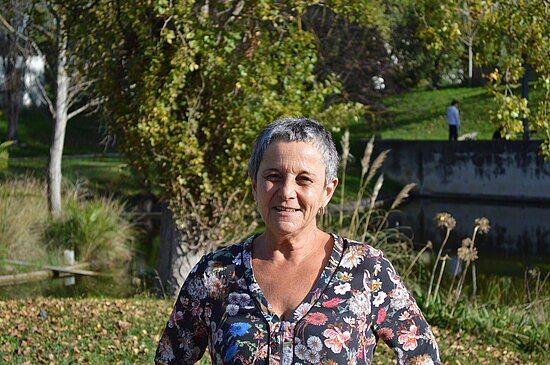Prof. Natália Alves

Natália Alves is an associate professor of adult education and sociology of education at the Institute of Education, University of Lisbon.
- VET policies
- Adult Education and gender
- Governance in Adult Education
- Adult Education and social justice
- Comparative VET
CG9: Adult Education and Gender: Adult Education and Lifelong Learning policies for women
Co-Moderator: Prof. Burcu Şimşek
Over the past decades, there has been a significant growth in the number of non-traditional students attending higher education worldwide. Governments and higher education institutions encourage underrepresented students to enrol. Widening their participation is often directed at two main goals: enhancing the national economic competitiveness and the social inclusion within higher education for traditionally excluded groups such as the working classes, ethnic minorities, older students and the disabled. In this comparative group, we will focus on a particular group of non-traditional students: the mature women. The definition of mature undergraduates varies among countries according to age criteria. In some countries, they are defined as those aged 21 and over; in others, as 23 or 25 and over. In spite of these age differences, there is a common agreement among the academic community: mature students are those who are older than ‘traditional’ students (18 years old). The research conducted to explore mature women’s motivation for participation in higher education shows that entry into tertiary education was influenced in some cases by the state of their relationship with their families. In other cases, the desire to attend higher education has been present for a long time, but the implementation of this desire was delayed because of situational, institutional and dispositional barriers. Based on the analysis of interviews conducted by the participants of this CGW with mature women attending higher education institutions, we expect students:
- to compare mature women’s motivations to attend higher education;
- to compare the barriers they had to overcome;
- to compare the mechanisms of support they could count on.
-
Tikkanen, J., Amaral, M. P., Järvinen, T. & Alves, N. (2025 forcoming). Constructing Learning Outcomes: Problematizing (Under) Achievement in Europe. Bloomsbury.
-
Duarte, A. G., Alves, N., Tanu, KM, Konstantinović, L., Kuzmanović, U. & Bogdanović, V. (2025).Women in science, technology and innovation, and STEM higher education: a comparative analysis of policies addressing gender issues in India, Portugal and Serbia. Andragoška spoznanja/Studies in Adult Education and Learning, 31(1), 23-42. DOI: https://doi.org/10.4312/as/19861
-
Duarte, A. G., Adusamra, A., Alves, N. & Rosemann, T. (2023). Mature Women in Higher Education: A Comparative Study in Germany, Palestine, and Portugal. L. Breitschwerdt, J. Schwarz & S. Schmidt-Lauff (Eds.). Comparative Research in Adult Education Global Perspectives on Participation, Sustainability and Digitalisation (pp. 51-67). wbv Publikation, ein Geschäftsbereich der wbv Media GmbH & Co. KG. doi.org 10.3278/9783763971336.
-
Cavaco, C., Alves, N., Guimarães, P., Feliciano, P., & Paulos, C. (2022). Teachers’ perceptions of school failure and dropout from a gender perspective: (re)production of stereotypes in school. Educational Research for Policy and Practice, 20(1), 29-44. doi: 10.1007/s10671-020-09265-7


